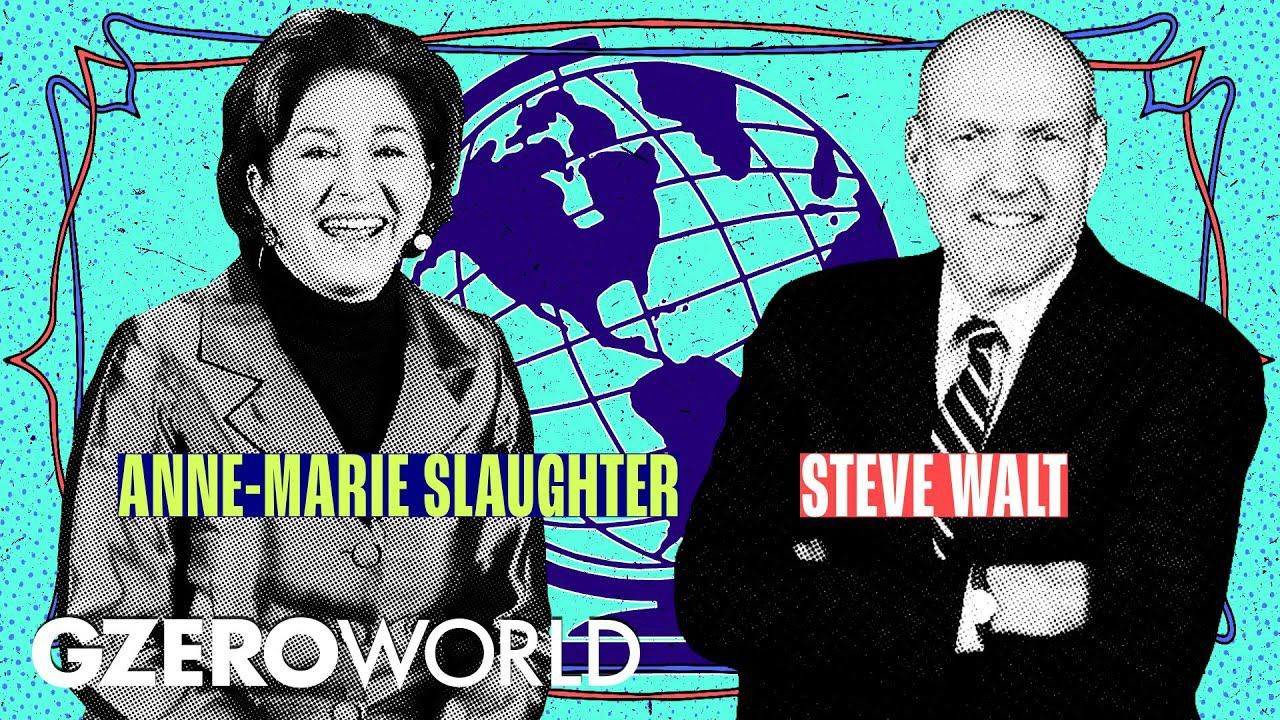GZERO World Clips
What the West is doing wrong in the world's biggest crises

What the West is Doing Wrong in the World's Biggest Crises | GZERO World Full Interview

To fix our broken international political system, we need a crisis. For instance, a pandemic, climate change, Big Tech having too much power, or a Russia invasion of Ukraine. But it must be a crisis that's so destructive it forces us to respond fast, and together — like World War II. That's the crisis that created the international system we have today, and kept the peace until now. On GZERO World, Ian Bremmer talks to Anne-Marie Slaughter, former US State Department official and now CEO of New America, and political scientist and Harvard professor Stephen Walt about the war and other crises.
Slaughter and Walt debate key issues such as the tough choices NATO faces on expanding to more countries but not Ukraine or other former Soviet republics, what we learned from the pandemic, and whether there are still reasons for hope in our current gloomy political environment. "If you're going to use a crisis effectively for change, you have to be able to have the right time horizon, the right group of countries, and a very specific set of goals," says Slaughter. But Walt believes we can't tackle all these crises at the same time — otherwise, at some point people will just throw up their hands and say it's just too hard.
For Walt, it was unfortunate to have "a lot of the wrong leaders in a lotta the wrong places at exactly the wrong time," which prevented for instance the US and China from coordinating a more effective global response to the pandemic.
Slaughter thinks we do have the ability to address many of the problems affecting the Global South because the most powerful countries are now all over the world. Many voices of people who need to be at the table — civic groups, CEOs, women, people of color — are not being heard.
In this Quick Take, Ian Bremmer addresses the killing of Alex Pretti at a protest in Minneapolis, calling it “a tipping point” in America’s increasingly volatile politics.
Who decides the boundaries for artificial intelligence, and how do governments ensure public trust? Speaking at the 2026 World Economic Forum in Davos, Arancha González Laya, Dean of the Paris School of International Affairs and former Foreign Minister of Spain, emphasized the importance of clear regulations to maintain trust in technology.
Will AI change the balance of power in the world? At the 2026 World Economic Forum in Davos, Ian Bremmer addresses how artificial intelligence could redefine global politics, human behavior, and societal stability.
Ian Bremmer sits down with Finland’s President Alexander Stubb and the IMF’s Kristalina Georgieva on the sidelines of the World Economic Forum to discuss President Trump’s Greenland threats, the state of the global economy, and the future of the transatlantic relationship.